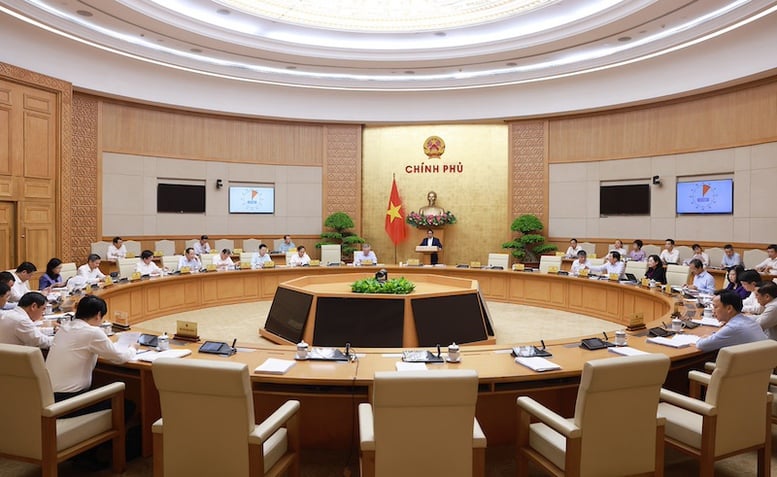
Prime Minister Pham Minh Chinh chaired a specialized meeting on law making in July 2025.
Resolution of the Special Session on Law Making in July 2025
The Government issued Resolution No. 223/NQ-CP dated July 31, 2025. Special session on law making in July 2025.
The Resolution stated: At the meeting on July 23, 2025, the Government discussed and gave opinions on the direction of the work of building institutions and laws; the Government's proposal on the 2026 Legislative Program and 06 draft laws, including: Draft Law on Vietnam Civil Aviation (amended); Draft Law on amending and supplementing a number of articles of the Law on Judicial Records; Draft Law on amending and supplementing a number of articles of the Law on Drug Prevention and Control (amended); Draft Law on Higher Education (amended); Draft Law on Vocational Education (amended); Draft Law on E-commerce.
Only apply the simplified procedure when absolutely necessary.
Regarding the direction of the work of building institutions and laws, the Government requires ministries and ministerial-level agencies to urgently develop and complete the dossiers of draft laws and resolutions that have been added to the Program of the 10th Session of the 15th National Assembly, ensuring quality and progress according to regulations. Regarding the proposal to build laws and resolutions, it is required to urgently develop a Submission proposing the addition of projects to the 2025 Legislative Program, only applying the shortened procedure in cases of real necessity. The law-making process must closely follow the direction of the Politburo and the Law on Promulgation of Legal Documents 2025, ensuring that the laws are concise, within the authority and suitable for practice. Draft laws must ensure quality, be easy to understand, easy to apply, and codify clear issues and have high consensus. The law-making process must listen to and accept the opinions of scientists and experts, and seek opinions from those affected. For new proposed or amended laws, the reasons for amendments, supplements, reductions, and decentralization must be clarified and the Government must be informed of issues with different opinions.
Regarding the Government's proposal on the 2026 Legislative Program, The Government assigned the Ministry of Justice to preside over and coordinate with ministries and branches to complete the Proposal for the 2026 Legislative Program, ensuring full and timely institutionalization of the Party's policies and meeting the requirements of sustainable development. Law-making must prioritize the right focus, be submitted reasonably through National Assembly sessions, avoid concentrating too much in one session, and ensure the quality of draft laws and resolutions. In urgent cases, it is necessary to promptly report to the Government to apply a special mechanism according to current regulations. The Ministry of Agriculture and Environment, the Ministry of Public Security and ministries and ministerial-level agencies must carefully review the scope, form, and content of the proposed amendments and supplements in the draft law amending many laws under their state management.
Comprehensive innovation of policies and procedures in criminal records work
Regarding the Draft Law amending and supplementing a number of articles of the Law on Judicial Records, the Government assigned the Ministry of Public Security to preside over and coordinate with ministries and branches to continue perfecting the draft Law amending and supplementing the Law on Judicial Records. The draft Law needs to fully institutionalize the Party's guidelines, comprehensively innovate policies and procedures in judicial records work. Effectively apply technology to build a centralized database system, connected with national data on population. The provisions in the draft Law must be transparent, feasible, overcome shortcomings, ensure administrative procedure reform, and not cause inconvenience to people and businesses. Strengthen decentralization, assign responsibility to leaders, and have a mechanism to monitor law enforcement. Transitional provisions must be clear, avoiding legal gaps. Regarding the issue of granting Judicial Records to commercial legal entities, the Ministry of Public Security continues to study and refer to international experience to apply appropriately to Vietnam's reality.
Regarding the Draft Law amending and supplementing a number of articles of the Law on Drug Prevention and Control, the Government assigned the Ministry of Public Security to preside over and coordinate with relevant ministries and agencies to continue reviewing and carefully assessing the impact of new regulations and policies; handling and resolving difficulties and inadequacies. The content of the draft Law is in the direction of prescribing a framework, assigning the Government to prescribe specific, detailed, and specialized contents; protecting the rights and legitimate interests of individuals and organizations, avoiding legal gaps. Strengthening decentralization and delegation of authority; thoroughly reforming administrative procedures and promoting the application of technology and digital transformation in state management of drug prevention and control.
Creating a legal corridor for the application of digital technology and artificial intelligence in higher education
Regarding the Draft Law on Higher Education, the Government assigned the Ministry of Education and Training to continue to complete the Draft Law on Higher Education in the direction of promoting the development of higher education, improving the quality of human resource training; building an advanced university governance system, increasing autonomy associated with accountability, improving the effectiveness of accreditation, reducing the number, increasing the quality of educational institutions, strengthening autonomy associated with accountability, organizing higher education management in the direction of: professional management from the central to the grassroots level. Building feasible policy mechanisms, developing digital data, standardizing assessment indicators to allocate resources and promote healthy competition. Creating a legal corridor for the application of digital technology, artificial intelligence, expanding learning opportunities and promoting lifelong learning. Ensuring consistency between the Law on Higher Education and related laws such as the Law on Vocational Education, the Law on Education, avoiding overlap. Complete the law in the direction of framework law, stipulate principles under the authority of the National Assembly, details are prescribed by the Government; promote administrative reform and digital transformation. Regarding the abolition of school boards, the Ministry of Education and Training will study and concretize the policy, give autonomy and self-responsibility to educational and training institutions and promote the role of party committees and heads of training institutions.
Regarding the Draft Law on Vocational Education, the Government assigned the Ministry of Education and Training to continue to urgently review and research, collect opinions to complete the draft Law, remove obstacles in school management, financial autonomy, and socialization of education. Amending regulations must be consistent with reality, with mechanisms to encourage training in specific industries, adapt to emerging industries, meet the needs of the labor market and international integration. Develop vocational secondary school programs based on international experience, ensuring feasibility and effectiveness. Design the highest incentive policies to attract businesses to participate in vocational training.
Removing shortcomings in e-commerce, fighting counterfeit goods, and preventing tax losses
Regarding the Draft Law on E-commerce, the Government assigned the Ministry of Industry and Trade to preside over and coordinate with relevant ministries and agencies to continue researching, carefully reviewing, and perfecting the draft Law, ensuring full institutionalization of the Party and State's policies, especially those on the development of the digital economy and digital technology. The provisions in the draft Law ensure the direction of creating and developing e-commerce; removing difficulties, obstacles, and shortcomings in practice and current legal regulations on e-commerce; meeting the requirements of state management in combating counterfeit, fake, poor-quality goods, and goods of unknown origin, protecting consumer rights, contributing to strengthening tax management and preventing tax losses. Strengthening decentralization and delegation of authority; having tools to monitor and inspect e-commerce activities; carefully reviewing to reduce and simplify administrative procedures in the electronic environment, creating favorable conditions for people and businesses to conduct business in accordance with the law. Refer to the experience of other countries in e-commerce management; continue to research and absorb opinions of relevant ministries, agencies, organizations, and subjects of the Law, ensuring clarity in the scope of regulation, no overlapping of functions and tasks among agencies; review the content of the draft Law to ensure consistency of the legal system, no overlap or duplication with related laws.
Research on regulations on airfares in the direction of decentralizing the level of adjustment of the Government and the Ministry of Finance
Regarding the Draft Law on Vietnam Civil Aviation, The Government assigned the Ministry of Construction to continue researching and receiving comments to complete the draft Law, which only stipulates the legal framework under the authority of the National Assembly; detailed contents and changes are assigned to the Government and the Minister to stipulate. Research and supplement regulations assigning the Government to stipulate in detail investment procedures for airport and seaport projects, clarifying the authority to assign investors, ensuring transparency and clear decentralization. Promote decentralization and thorough delegation of power in the direction that each task is assigned to only one agency or locality to handle. Research regulations on ticket prices in the direction of decentralizing the adjustment level decided by the Government and the adjustment level decided by the Ministry of Finance. Supplement regulations to resolve difficulties in pricing and handling the demolition of construction items that are no longer of use. Clearly define dual-use in the direction that the Ministry of National Defense and the Ministry of Public Security are assigned and responsible to the Government for the exploitation of airports under their management authority. Regarding regulations on the management of unmanned aerial vehicles, the Ministry of Construction regulates devices related to civil use, and the Ministry of National Defense regulates devices related to military, security, and defense.
At the same time, research regulations assigning the Ministry of Construction to take full responsibility for handling issues related to ensuring safety for aircraft, flight crews, passengers, luggage, and cargo on aircraft; research not to regulate the organization of airport investment by airport enterprises at Point a, Clause 3, Article 31 of the draft Law to amend in the direction of ensuring that all enterprises have equal rights to invest in airports, creating conditions to attract maximum resources of enterprises participating in investment in airports.
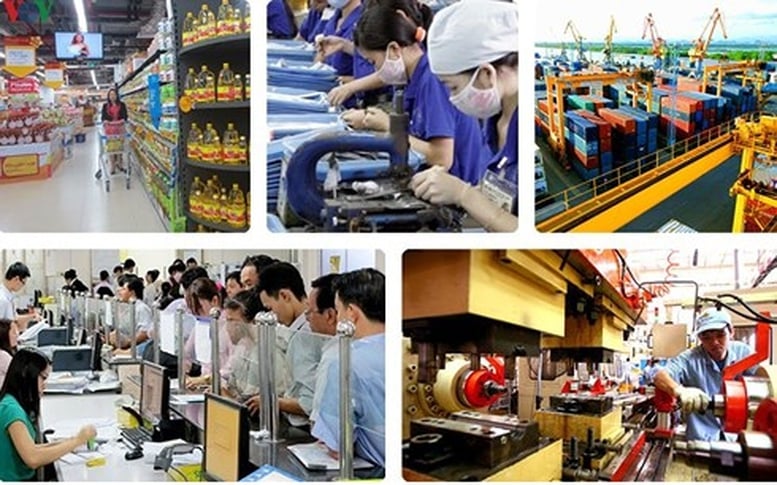
Simplify administrative procedures related to production and business activities.
Approving the Plan to reduce and simplify administrative procedures related to production and business activities under the management of the Ministry of Industry and Trade
Deputy Prime Minister Nguyen Hoa Binh signed Decision No. 1643/QD-TTg of the Prime Minister approving the Plan to reduce and simplify administrative procedures related to production and business activities under the management of the Ministry of Industry and Trade.
Specifically, the Prime Minister approved the reduction and simplification of administrative procedures related to production and business activities in 16 areas: Alcohol production and trading; food safety; automobile production and assembly; supporting industry; tobacco; gas trading; trade promotion; import and export; science and technology; quality measurement standards; multi-level sales management; e-commerce; gasoline trading; international trade; industrial explosives, explosive precursors; electricity.
In addition, reduce and simplify investment and business conditions in the following 12 industries: alcohol production and trading; tobacco trading; gas trading; petroleum trading; e-commerce; multi-level marketing; import and export; trading of goods and activities directly related to trading of goods by foreign service providers in Vietnam; electricity activities; industrial explosives, explosive precursors; production and trading of food safety; production and trading of rice.
In addition, the Prime Minister approved the reduction and simplification of internal administrative procedures in five areas: Oil and gas; border trade; trade promotion; competition management; and consumer rights protection.
Remove 3 conditions on wholesale alcohol
Specifically, to create a transparent, stable, safe, and easy-to-implement business environment for businesses, the Prime Minister has approved the removal of three conditions on alcohol wholesale:
- Is an enterprise established in accordance with the provisions of law.
- Having a wholesale alcohol system in the province or centrally-run city where the enterprise has its headquarters with at least 01 alcohol retailer. In case the enterprise establishes a branch or business location outside the headquarters to trade in alcohol, confirmation from the alcohol retailer is not required.
- Have a letter of introduction or a contract in principle from a wine producer, wine distributor or other wine wholesaler.
Eliminate all conditions for Wholesale License of Tobacco Products
Decision to reduce all conditions for Tobacco Product Wholesale License, specifically including 04 conditions:
+ Is an enterprise established in accordance with the provisions of law.
+ The business location does not violate the regulations on locations where tobacco is not allowed to be sold as prescribed in Clause 2, Article 25 of the Law on Prevention and Control of Tobacco Harms 2012.
+ Have a wholesale system of tobacco products in the province where the trader has its headquarters (must have at least 02 or more tobacco product retailers.
+ Have an introduction letter from the tobacco product supplier or tobacco product distributor stating the intended business location.
Cut 2 conditions for gas export and import traders
Regarding the conditions for gas export and import traders, the decision transfers 01 post-inspection condition "Meeting the conditions on fire prevention and fighting according to the provisions of law".
Cut 02 conditions: (i) Have LPG cylinders or LPG cylinder rental contracts that meet the conditions for circulation on the market for LPG exporters and importers trading in LPG cylinders; (ii) For traders exporting and importing gas through pipelines, in addition to meeting the conditions specified in Points a, b, c, Clause 1 of this Article, they must also have a gas supply station that meets the safety conditions specified in Chapter IV of this Decree.
Cut all conditions on general agents of petroleum business
The decision to cut all conditions on general agents of petroleum business specifically includes 02 conditions:
(i) Traders who have been granted a Certificate of eligibility to act as a general agent for petroleum trading may continue to operate in accordance with the regulations on general agents for petroleum trading in Decree No. 95/2021/ND-CP and Decree No. 83/2014/ND-CP until the Certificate of eligibility to act as a general agent for petroleum trading expires.
(ii) Except for the case specified in Point a, Clause 2, Article 2 of this Decree, the provisions on general agents in Decree No. 95/2021/ND-CP and Decree No. 83/2014/ND-CP cease to be effective from the effective date of this Decree.
Regarding the conditions for gasoline retail agents, the Decision reduces the condition "Managers and direct sales staff must be trained, coached and have training certificates, professional training in fire prevention, fire fighting and environmental protection according to current law."
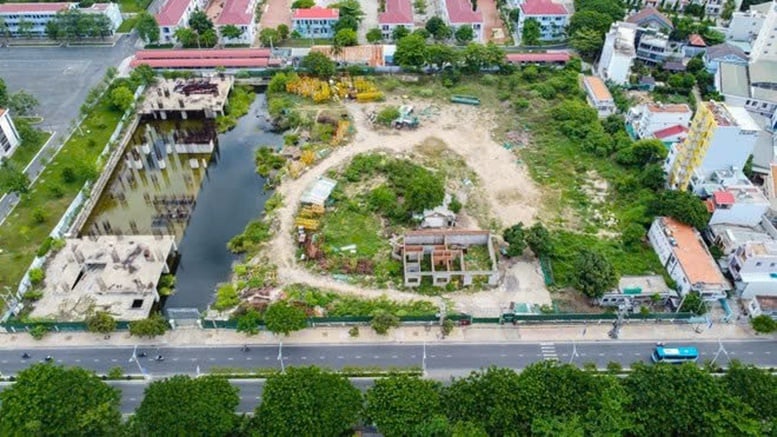
The Steering Committee for resolving difficulties and obstacles of backlogged projects has the function of assisting the Prime Minister in researching and proposing solutions to important, inter-sectoral issues to remove difficulties and obstacles related to backlogged projects - Illustrative photo
Regulations on organization and operation of the Steering Committee on resolving difficulties and problems of pending projects
Deputy Prime Minister Nguyen Hoa Binh - Head of the Steering Committee for resolving difficulties and problems of backlogged projects signed Decision No. 113/QD-BCĐ dated July 31, 2025 promulgating the Regulation on organization and operation of this Steering Committee. Principles of organization and operation
The Regulations clearly state that the Steering Committee operates according to the principle of democratic centralism, promoting the responsibility of the leader and promoting the collective intelligence of the members; ensuring the requirements of close coordination and unity in direction, management and information exchange to resolve work according to the functions, tasks and powers of the member agencies as prescribed by law.
Members of the Steering Committee shall promote personal responsibility in the activities of the Steering Committee and in performing assigned tasks and powers; handle work in accordance with assigned authority and responsibilities, in accordance with the order and procedures prescribed by law and the provisions of this Regulation.
Steering Committee members are responsible for fully participating in the activities of the Steering Committee; performing and being responsible to the Head of the Steering Committee for assigned tasks.
Working regime and coordination mechanism of the Steering Committee
According to this Regulation, the members of the Steering Committee work part-time. The Head of the Steering Committee is the Permanent Deputy Prime Minister of the Government and uses the seal of the Prime Minister, while other members use the seal of their agencies.
The Head and Deputy Head of the Steering Committee work with members of the Steering Committee and ministries, branches and localities to listen to situation reports and direct the implementation of the Steering Committee's programs and action plans.
The members of the Steering Committee are proactive in working and dialogue with businesses and investors to grasp difficulties and obstacles in implementing investment and business procedures, and issues in actual project implementation (if any). Then, they summarize and report to the Head of the Steering Committee at the nearest regular meetings according to the schedule of the Head of the Steering Committee.
Members of the Steering Committee use the apparatus and facilities of their agencies and units to perform the tasks assigned by the Head of the Committee or the Deputy Head of the Committee in case of authorization by the Head of the Committee; coordinate with members of the Steering Committee in performing tasks; report to the Head of the Committee on the results of implementation; may establish a support team at their unit to advise on the implementation of tasks in a timely, regular, substantive and effective manner.
Members of the Steering Committee are responsible for periodically reporting on the implementation of assigned tasks in their assigned fields at the quarterly conference once a quarter; and are responsible for information, reports, and results of assigned tasks within their scope of management.
The Ministry of Finance is the standing agency of the Steering Committee.
The Ministry of Finance is the standing agency of the Steering Committee, providing advice on the development of the Steering Committee's work plan with ministries, branches, localities and relevant subjects to survey, review and synthesize stuck projects; classify problem groups and expect Steering Committee members to research and propose solutions, advise the Head of the Steering Committee to report to the Prime Minister to direct ministries, branches and localities to research and propose for problem groups not within the scope of ministries and agencies managed by Steering Committee members.
At the same time, act as a focal point for gathering information and coordinating work among members of the Steering Committee; receive reports, relevant documents and files from ministries, branches, localities and relevant agencies and units to synthesize reports; maintain contact between members of the Steering Committee in implementing the tasks of the Steering Committee.
In addition, synthesize and develop reports and documents of the Steering Committee to submit to competent authorities for consideration and decision as assigned by the Head of the Steering Committee; prepare content and conditions for organizing meetings, conferences and working groups of the Steering Committee as directed by the Head of the Steering Committee; submit to the Head of the Steering Committee for decision on establishing a Steering Committee Support Team according to the Prime Minister's decision on establishing the Steering Committee.
The Ministry of Finance reports to the Steering Committee, the Head of the Steering Committee considers and advises the Prime Minister to assign ministries, agencies and localities according to their functions and tasks to preside over the drafting of the Government's Resolution to guide the resolution of each specific group of issues under their authority; consult with members of the Steering Committee, relevant ministries, branches and localities, report to the Head of the Steering Committee for consideration and decision before submitting to the Prime Minister for consideration and permission to report to the Government.
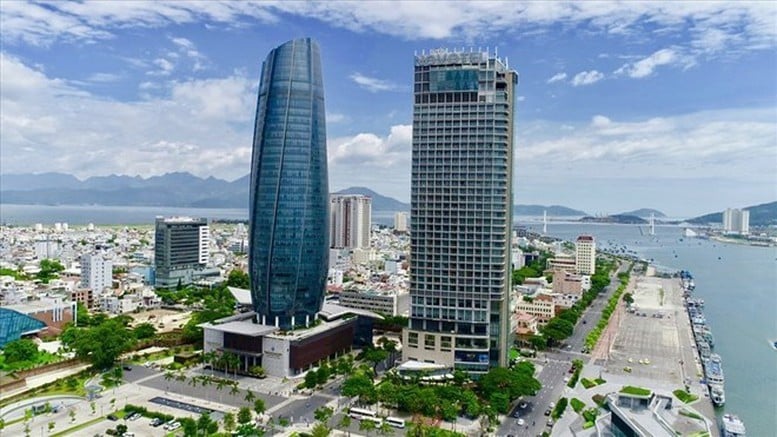
Establishment of Steering Committee on International Financial Center in Vietnam
Establishment of Steering Committee on International Financial Center in Vietnam
Prime Minister Pham Minh Chinh signed Decision No. 1646/QD-TTg dated August 1, 2025 to establish the Steering Committee on the International Financial Center in Vietnam.
The Steering Committee on the International Financial Center in Vietnam (the Steering Committee) was established to assist the Government in directing orientation, strategy, and coordination to ensure smooth and consistent operation of the construction, operation, and development of the International Financial Center in Vietnam in accordance with Resolution No. 222/2025/QH15 dated June 27, 2025 of the National Assembly on the International Financial Center in Vietnam.
Steering Committee Member
The Head of the Steering Committee is Prime Minister Pham Minh Chinh.
The Deputy Heads of the Committee include: Permanent Deputy Prime Minister Nguyen Hoa Binh (Permanent Deputy Head of the Committee); Secretary of the Ho Chi Minh City Party Committee Nguyen Van Nen; Minister of Finance Nguyen Van Thang; Governor of the State Bank of Vietnam Nguyen Thi Hong; Secretary of the Da Nang City Party Committee Nguyen Van Quang.
Members of the Steering Committee include: Deputy Minister of Finance Nguyen Thi Bich Ngoc (Standing Member); Chairman of Ho Chi Minh City People's Committee Nguyen Van Duoc; Chairman of Da Nang City People's Committee Luong Nguyen Minh Triet; Senior Lieutenant General Vu Hai San, Deputy Minister of National Defense; Senior Lieutenant General Pham The Tung, Deputy Minister of Public Security; Deputy Head of the Government Office Mai Thi Thu Van; Deputy Chief Justice of the Supreme People's Court Nguyen Van Tien; Deputy Governor of the State Bank of Vietnam Pham Tien Dung; Deputy Minister of Industry and Trade Nguyen Sinh Nhat Tan; Deputy Minister of Science and Technology Pham Duc Long; Deputy Minister of Agriculture and Environment Nguyen Hoang Hiep; Deputy Minister of Home Affairs Truong Hai Long; Deputy Minister of Justice Nguyen Thanh Tinh; Deputy Minister of Education and Training Hoang Minh Son.
Duties and powers of the Steering Committee
The Steering Committee is responsible for directing the orientation and strategy for the development of the International Financial Center in Vietnam; directing the orientation and development of institutions and policies applicable to the International Financial Center in Vietnam to ensure continuity and consistency according to the provisions of Resolution No. 222/2025/QH15 dated June 27, 2025 of the National Assembly; directing the establishment and operation of agencies and organizations under the International Financial Center in Vietnam.
The Steering Committee is also responsible for directing the arrangement and mobilization of resources for infrastructure construction and development of the International Financial Center in Vietnam; presiding over and organizing cooperation, consultation and exchange activities with domestic and international agencies and organizations on the development of the International Financial Center in Vietnam and performing other tasks related to the International Financial Center in Vietnam assigned by the Government.
The Steering Committee works part-time, promoting the responsibility of the Head of the Steering Committee and each member of the Steering Committee in proposing directions and solutions to build and develop the International Financial Center, ensuring feasibility, efficiency, and suitability with the practical situation to maximize the potential and advantages of Vietnam in general and Ho Chi Minh City and Da Nang City in particular.
The Ministry of Finance is the standing agency of the Steering Committee.
The Ministry of Finance is the standing agency of the Steering Committee, responsible for presiding over and coordinating with relevant agencies to ensure the operating conditions of the Steering Committee as prescribed in Clause 1, Article 15 of the Regulation on establishment, organization and operation of inter-sectoral coordination organizations issued together with Decision No. 23/2023/QD-TTg dated December 10, 2023 of the Prime Minister. At the same time, it is responsible for synthesizing opinions, proposals and recommendations of ministries, agencies and localities; preparing content and documents for meetings of the Steering Committee; presiding over the drafting of Reports, proposals and recommendations of the Steering Committee to periodically and suddenly report to the Government upon request; performing tasks assigned and requested by the Head of the Steering Committee.

Action plan to implement the construction of an international financial center in Vietnam
Action plan to implement the construction of an international financial center in Vietnam
Prime Minister Pham Minh Chinh - Head of the Steering Committee for the International Financial Center in Vietnam has just signed Decision No. 114/QD-BCDTTTC dated August 1, 2025 promulgating the Action Plan for implementing the construction of an International Financial Center in Vietnam.
The goal of the Plan is to establish and put into operation an International Financial Center (IFC) in Ho Chi Minh City and Da Nang City by the end of 2025. This is a breakthrough in attracting medium and long-term financial resources, creating a foundation for Vietnam's socio-economic growth in the new period.
At the same time, perfect the specific legal framework for the international financial market, ensuring synchronization, transparency, and systematicity, with specific and outstanding mechanisms and policies according to the roadmap to encourage and facilitate the attraction of capital, technology, modern management methods, high-quality human resources, financial institutions, and large international investors, along with appropriate inspection, supervision, and risk management mechanisms, ensuring national financial and monetary security and safety.
Synchronously develop infrastructure and essential services (transportation, telecommunications, logistics, etc.) in Ho Chi Minh City and Da Nang City to support the operation of the International Financial Center. By the end of 2025, complete a number of key infrastructure projects as the foundation for the International Financial Center to ensure seamless connectivity.
Building a modern financial ecosystem
The Steering Committee sets the goal of building a modern financial ecosystem: promoting new markets (commodity exchanges, carbon...), high-tech financial services (fintech, digital banking) and high-quality human resources to serve the international financial market. Strive to initially form an ecosystem of support services (legal, auditing, technology...) that meet international standards in Ho Chi Minh City and Da Nang City by 2025.
Establish an effective coordination and monitoring mechanism: Complete the management and operation apparatus of the International Trade Center to ensure clear assignment of people, tasks, time, products, responsibilities, and authorities according to the direction of the Prime Minister; ensure close coordination between ministries, branches, and localities during the implementation process.
Based on the above objectives, the Implementation Plan sets out major task groups according to the implementation roadmap from July to December 2025. The task groups include:
1. Completing the legal framework and specific institutions for the International Financial Center: Developing Decrees guiding Resolution No. 222/2025/QH15; perfecting the management and operation apparatus of the International Financial Center.
2. Developing strategic infrastructure and urban space for the International Trade Center: Developing space, accelerating infrastructure construction progress; soft infrastructure component.
Regarding space development and accelerating the progress of infrastructure construction, Ho Chi Minh City will accelerate the preparation of facilities and infrastructure to build and develop the International Trade Center in the areas of Saigon Ward, Ben Thanh Ward and Thu Thiem with a total area of about 793 hectares. In Da Nang City, review, complete and prepare infrastructure to serve the International Trade Center in Da Nang City.
Regarding the soft infrastructure component, Ho Chi Minh City: (i) Complete the energy telecommunications infrastructure in Saigon Ward and Ben Thanh Ward, ensuring technical conditions for serving digital transactions, fintech, and digital banking activities; accelerate the deployment of 5G mobile network coverage in the International Financial Center area, the city center, administrative, medical, educational, transportation, cultural - tourism areas, and key residential and commercial areas; (ii) Invest in digital infrastructure in the Thu Thiem area identified as the International Financial Center.
Da Nang City invests in a system of computing servers, storage, monitoring infrastructure, and smart operations at Software Park No. 2 to serve the International Financial Center; promotes the deployment of 5G coverage in the area where the International Financial Center is built and in Da Nang City; guides and invests in building a blockchain network in Da Nang City to serve the pilot deployment of digital asset products and NFTs. Continue to perfect national standards on IOT, AI, BigData, 5G, data standards, etc.
3. Developing priority financial services, markets and products: Implementing controlled experimental financial policies for financial services applying technology (Fintech) and innovation; expanding and upgrading the commodity trading market; developing high-quality financial products and services; incentive mechanisms, attracting investment
4. Developing human resources and ecosystems to support the international financial center: Developing infrastructure and markets while focusing on building a high-quality workforce and a favorable business environment to serve the financial center such as: Training and attracting high-quality financial human resources; developing an ecosystem of innovation and financial technology; ensuring security, order and an attractive living environment.
5. Organize working groups to survey international experience in TTTC.
6. Mechanism for coordination, monitoring and supervision of implementation.
Prime Minister requested Ministers, Heads of ministerial-level agencies, Heads of Government agencies, Chairmen of the People's Committees of Ho Chi Minh City and Da Nang City shall, based on the content of the Action Plan, develop detailed plans for their units and organize effective implementation; closely follow the implementation process of assigned tasks, ensuring progress and quality; promptly detect difficulties, obstacles and arising issues for handling according to authority or reporting to competent authorities for handling.
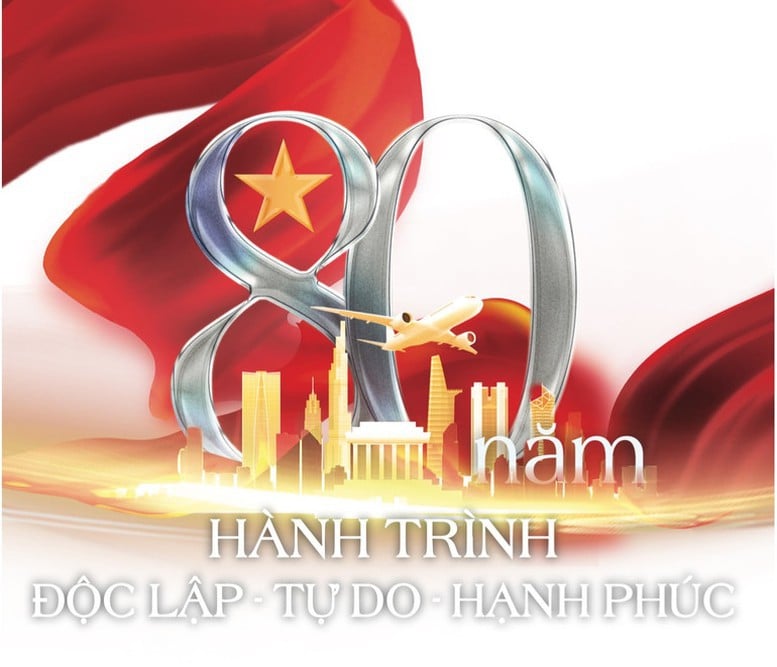
Logo of the National Achievement Exhibition on the occasion of the 80th anniversary of National Day.
Conclusion of the Government Standing Committee on preparations for organizing the National Achievements Exhibition on the occasion of the 80th anniversary of National Day
The Government Office issued Notice No. 393/TB-VPCP concluding the Government Standing Committee's work on preparations for organizing the National Achievements Exhibition on the occasion of the 80th anniversary of National Day.
In the Notice, the Government Standing Committee requested the Ministry of Culture, Sports and Tourism to synthesize and seriously absorb the opinions of the Government Standing Committee and delegates attending the Government Standing Committee meeting on July 29, 2025; directly discuss and closely coordinate with Vingroup Corporation and international consulting units, carefully review and promptly complete the design plan for the application identification in the overall space of the Exhibition (including research to add Vietnamese cultural elements) and the overall design of the Exhibition, ensuring quality, progress, meeting the requirements set forth in terms of politics, aesthetics and full legal basis according to the law, on that basis the Ministry of Culture, Sports and Tourism is responsible for promptly appraising and approving for implementation according to regulations; Work directly with Vingroup Corporation and relevant agencies and units to urgently develop detailed scenarios for logistics, traffic, health, security, order, fire prevention, environmental sanitation, landscape of the exhibition space, arrangement of trees, food areas, services, entertainment and public sanitation to serve the essential needs of the people and visitors to the exhibition.
There is very little time left from now until the opening day of the Exhibition, while the amount of work to be done is still a lot, the Government Standing Committee requests the Ministry of Culture, Sports and Tourism to preside over and coordinate with relevant ministries and agencies to focus on implementing resolutely, urgently and effectively the assigned tasks and duties, proactively handle arising issues within its authority, promptly report to competent authorities on issues beyond its authority (Deputy Prime Minister Mai Van Chinh will directly handle); ensure strictness, efficiency, compliance with legal regulations, and prevent negativity, waste and corruption.
The Government Standing Committee assigned Deputy Prime Minister Mai Van Chinh to focus on directing and inspecting, the Minister of Culture, Sports and Tourism to regularly review, inspect, urge, grasp the situation, handle and deploy daily work; weekly report to the Prime Minister and Deputy Prime Ministers on the progress of implementing specific tasks and works and propose recommendations (if any)./.
Source: https://baochinhphu.vn/chi-dao-dieu-hanh-cua-chinh-phu-thu-tuong-chinh-phu-ngay-1-8-2025-102250801191903858.htm


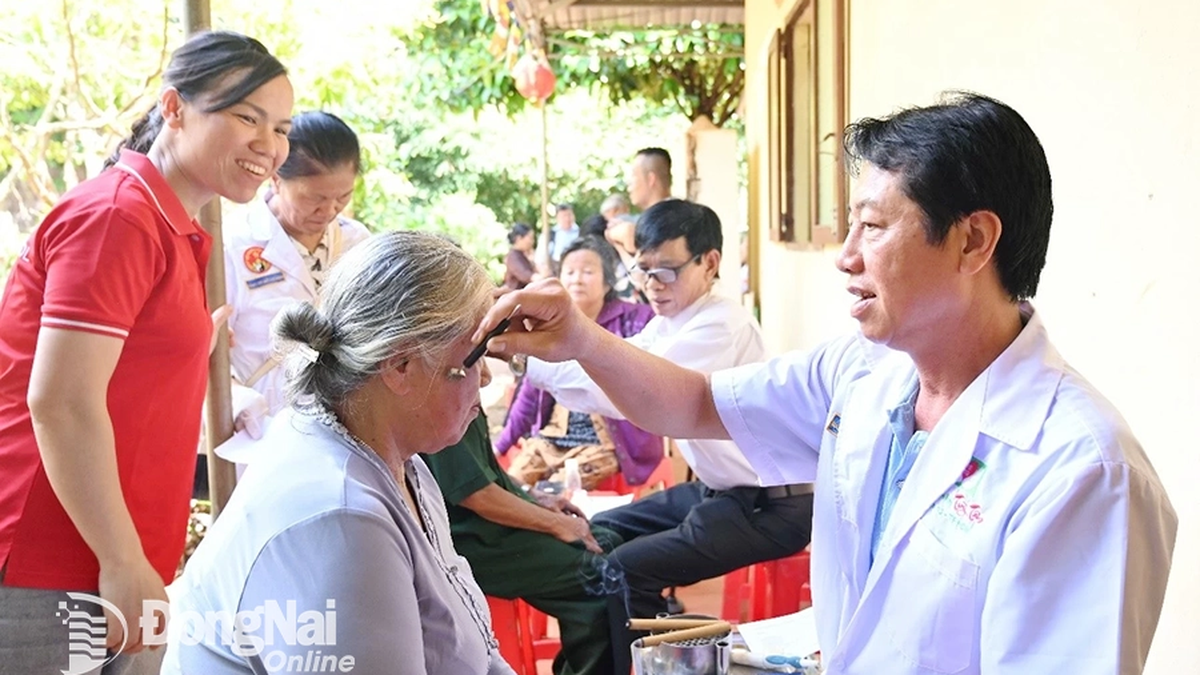
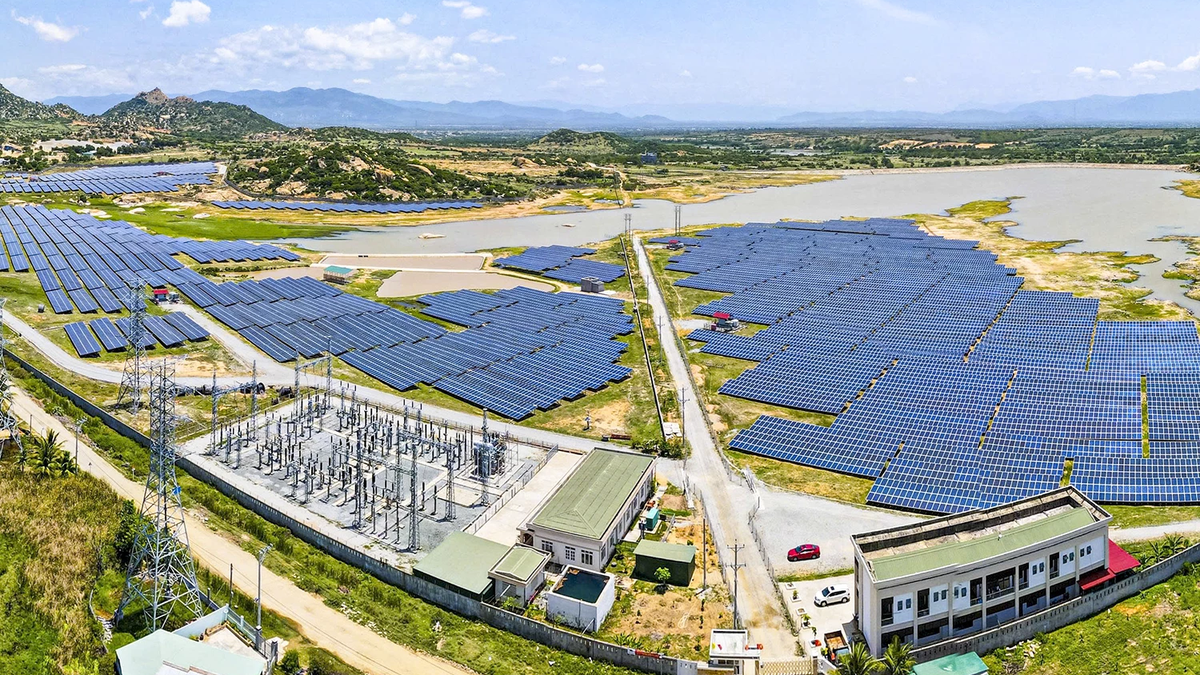

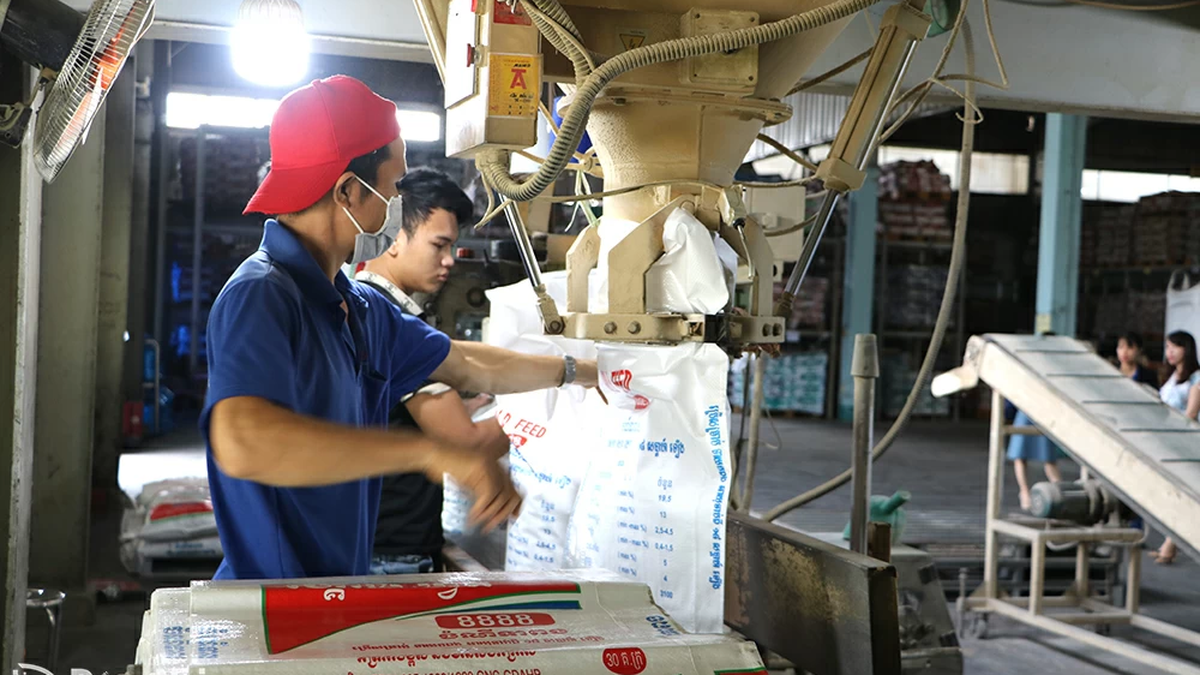

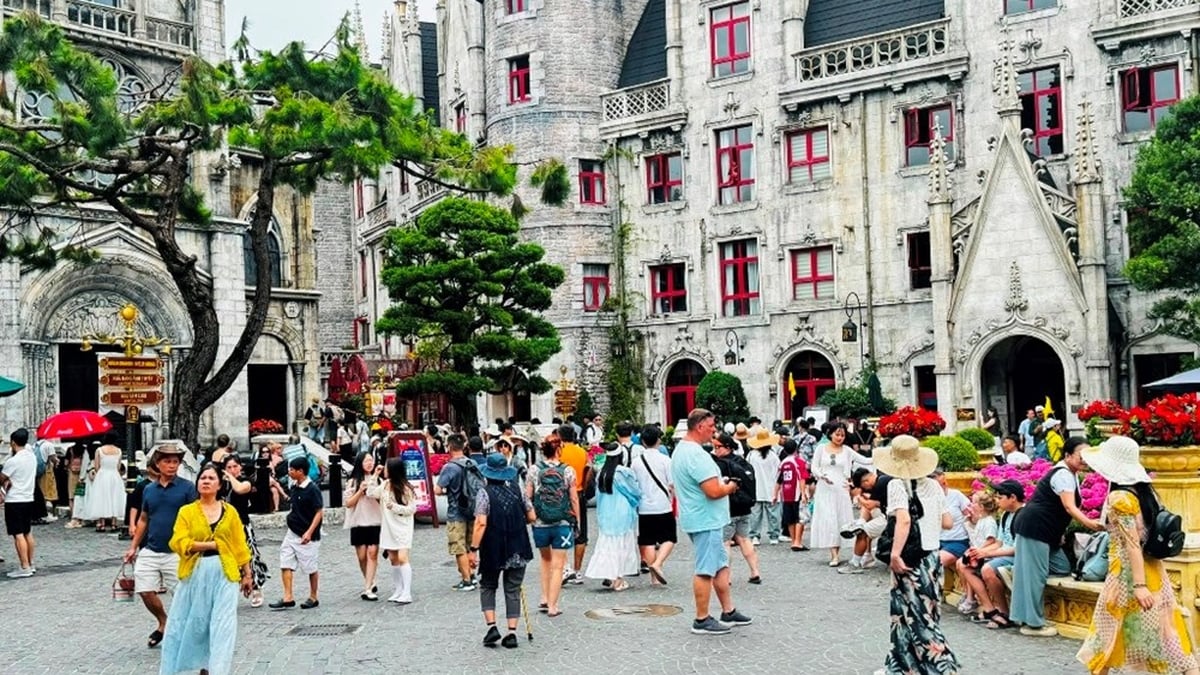
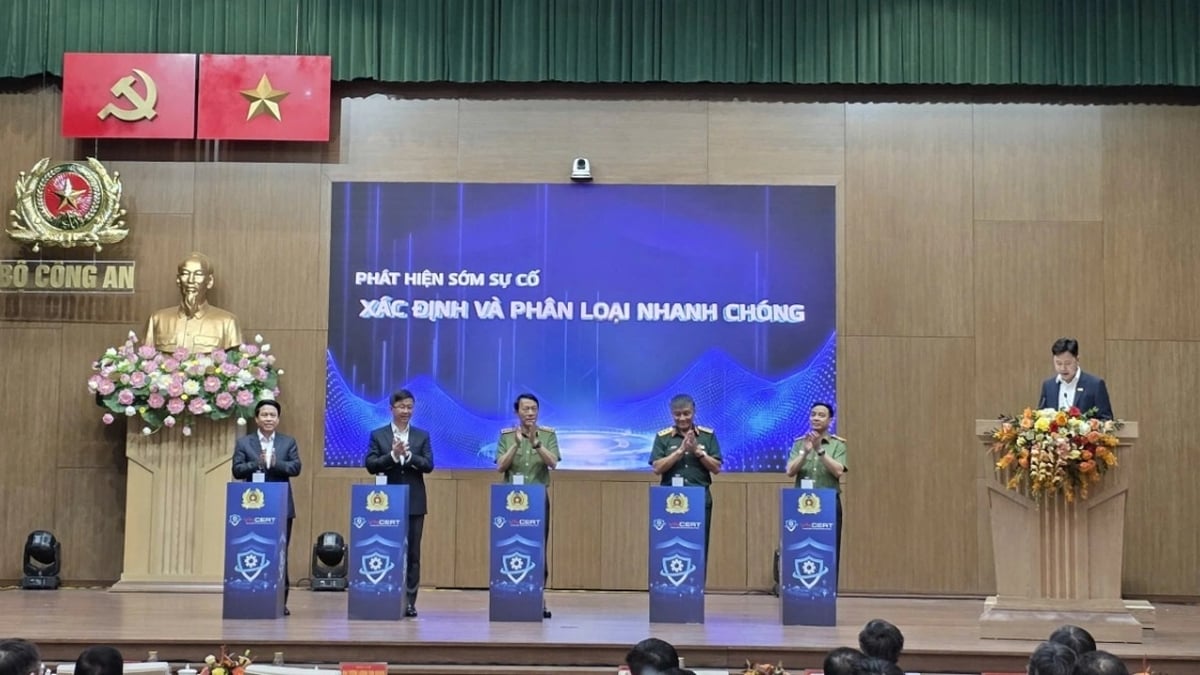
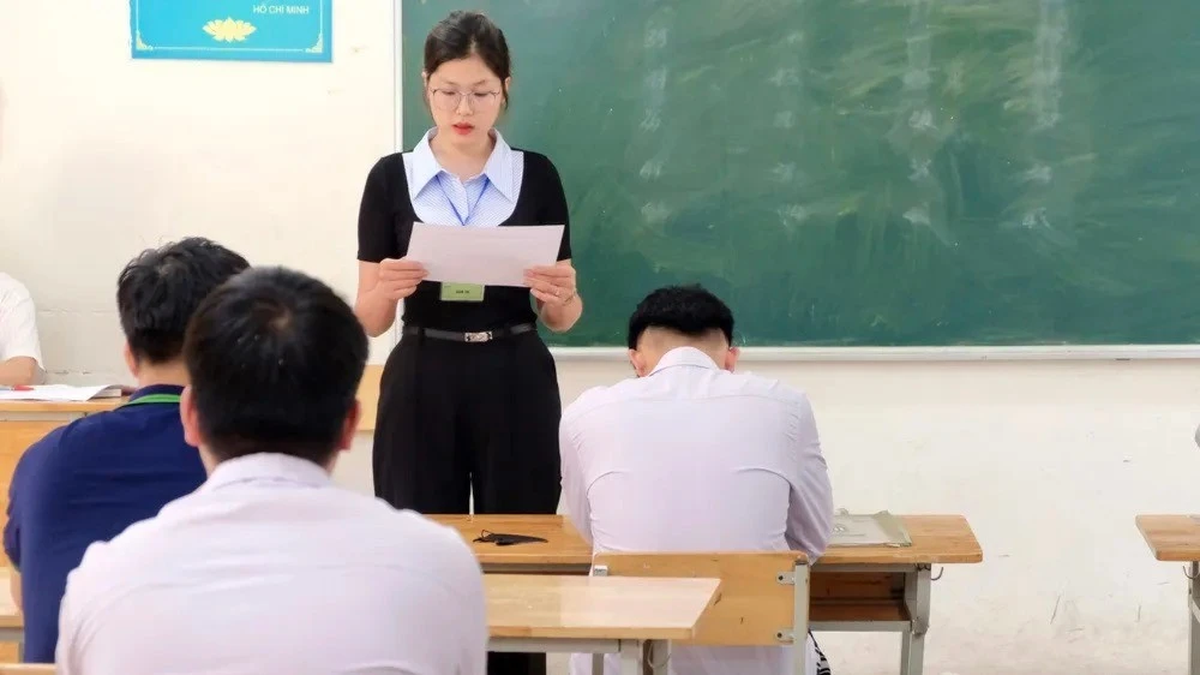
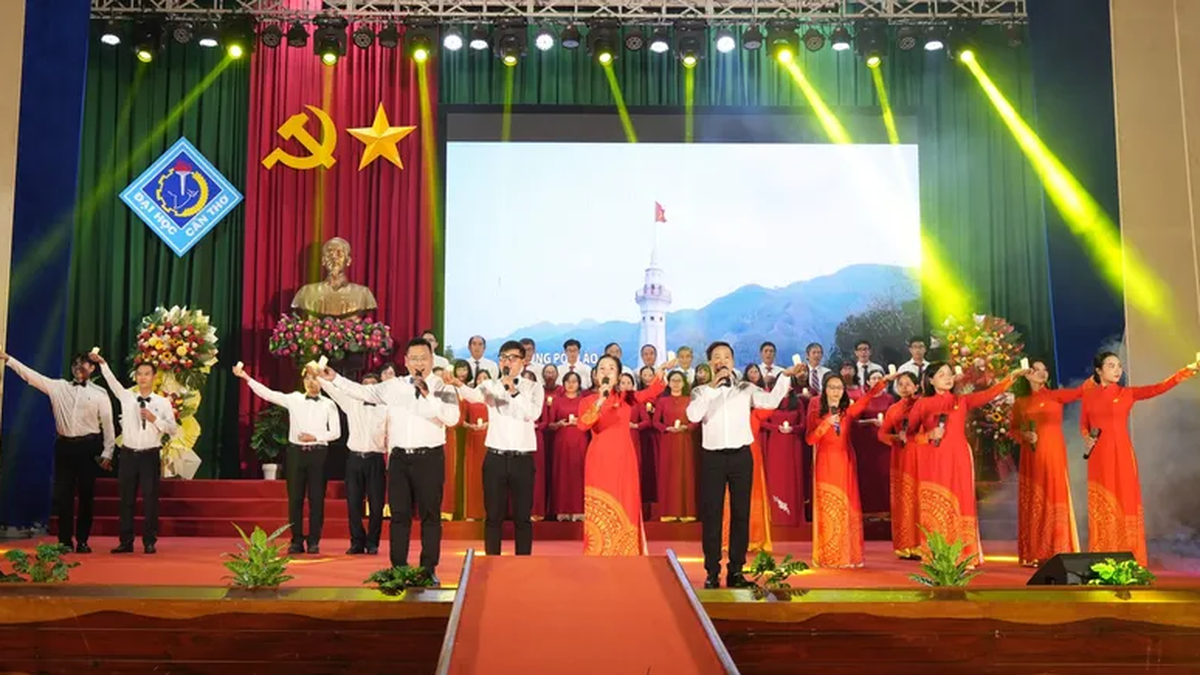
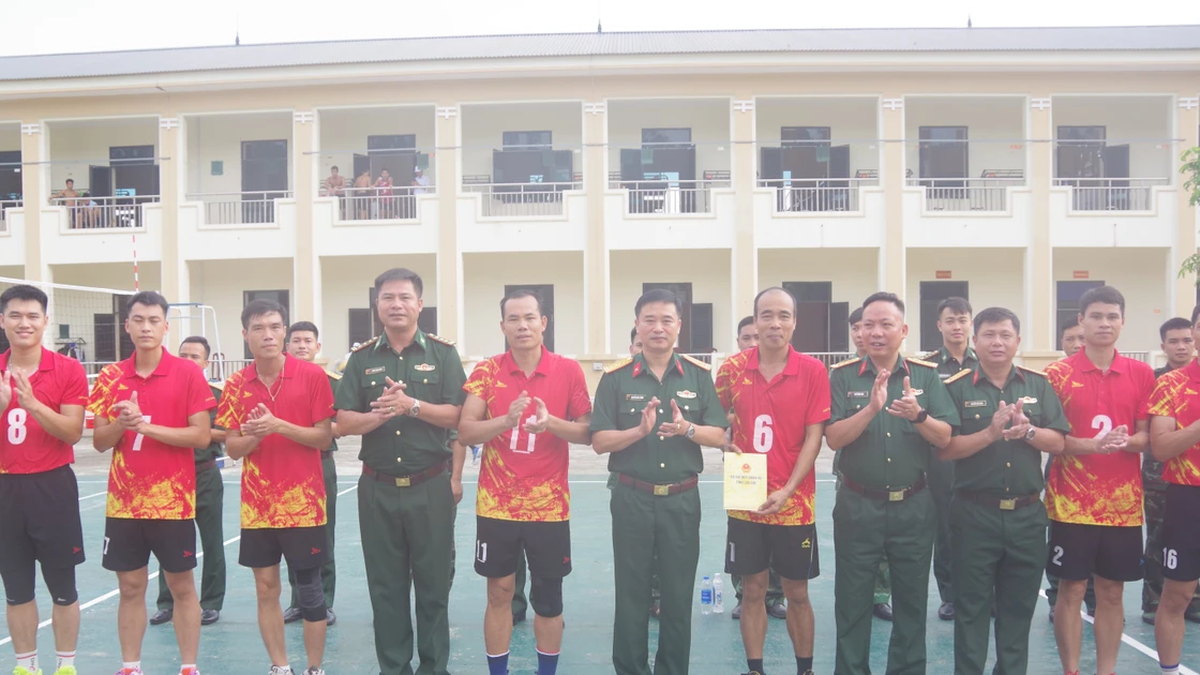

















![[Photo] Nghe An: Provincial Road 543D seriously eroded due to floods](https://vphoto.vietnam.vn/thumb/1200x675/vietnam/resource/IMAGE/2025/8/5/5759d3837c26428799f6d929fa274493)


























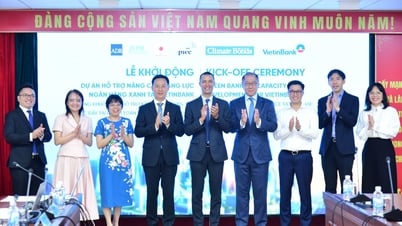




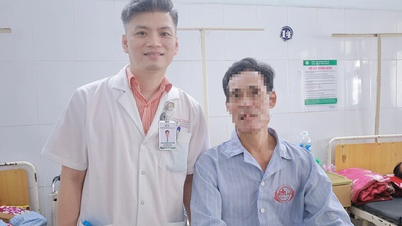
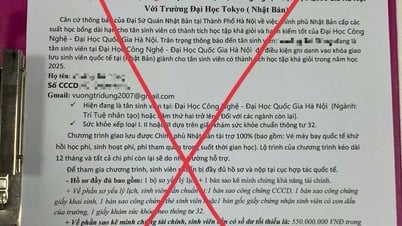
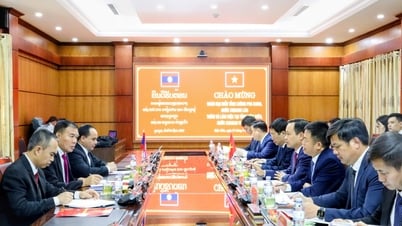


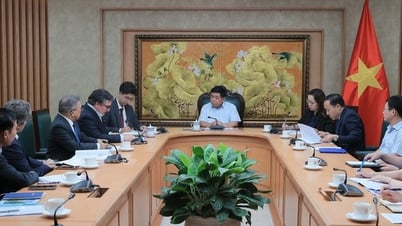

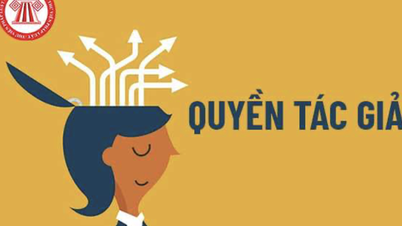

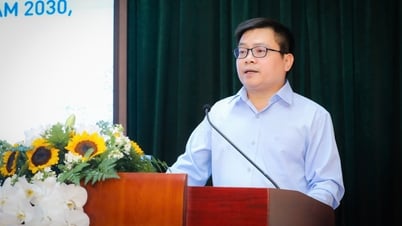


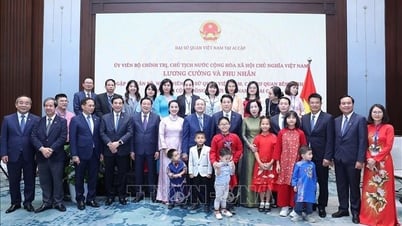

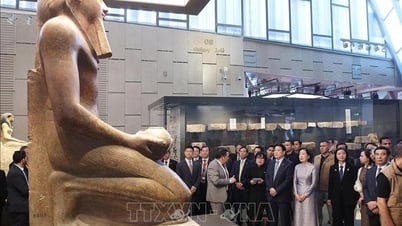
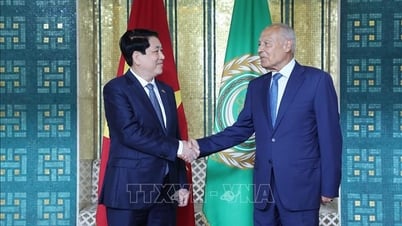





















Comment (0)